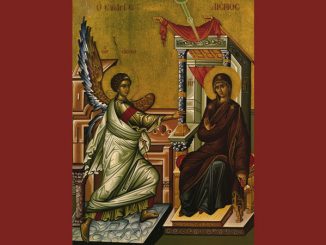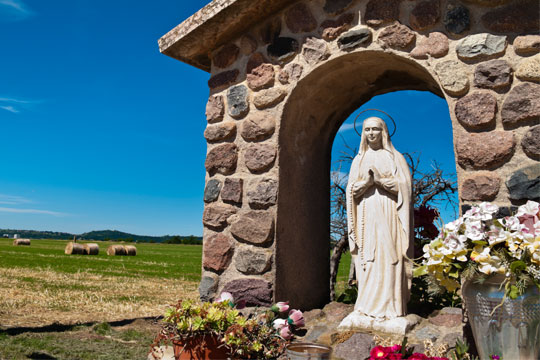
Did you know that the Virgin Mary is known as “mother and model of catechists?” Catechists are called to a special devotion to her because “[t]hrough her own special vocation, Mary saw the Son of God ‛grow in wisdom, in age and in grace’ (Lk 2:52). She was the teacher who ‛trained Him in human knowledge of the Scriptures and of God’s loving plan for his people, and in adoration of the Father.’ She was also ‛the first of his disciples.’” (Guide for Catechists, 10)
Like Mary, catechists are called to discipleship, to say “yes” to God and to bring the Word of God to the world, just as Mary did. “By her vocation as the Virgin Mother of God, Mary is a singular model for the Church’s mission of evangelization and catechesis.” (National Directory for Catechesis, 300)
Parish leaders can help catechists develop a relationship with Mary. Through group prayer at catechist meetings and by encouraging catechists to pray the Rosary and take part in Marian feasts and devotions, leaders can help catechists see Mary as a model of catechesis.
Even more important to the spiritual life of the catechist is devotion to the Eucharist. This not only means going to Mass regularly but also cultivating a hunger for Jesus in the Eucharist and, when possible, spending time in Adoration and prayer before the Blessed Sacrament. Knowing the person of Jesus is indispensable to discipleship and, ultimately, the core of the catechist’s vocation and spirituality. Invite catechists to attend Mass together or to participate in Adoration during or after a catechist meeting. Encourage them to slow down and be in the presence of God.
Catechists should already be authentic disciples who have a healthy, if not deep, spirituality when they are recruited. However, catechetical leaders still need to take a leadership role in developing the spirituality of those whose initial response to the call to catechesis was more from a sense of helpfulness than from a burning desire to share Christ. In reality, often those who are inclined to be “do-ers” rather than “be-ers” answer the call when a volunteer catechist is needed. However, God sometimes calls people to the vocation of catechist who do not have a deep sense of spirituality. We cannot ignore the fact that many who initially volunteer out of good will find their call leads them over time into a more significant relationship with Jesus Christ.
In the topics we have explored in this series on the spirituality of catechists (See sidebar for other articles in series.), what has emerged is the important role of the parish leader as a model and a provider of spiritual formation. It takes a disciple to make a disciple—and is not disciple-making the primary goal of catechesis?





Be the first to comment